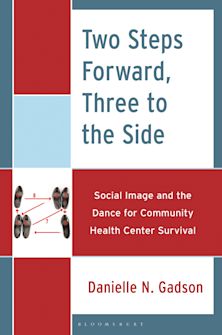Health for Everyone
A Guide to Politically and Socially Progressive Healthcare
Health for Everyone
A Guide to Politically and Socially Progressive Healthcare
Description
A guide to progressive healthcare packed full of actionable recommendations and a road map to a more inclusive and equitable future.
Health for Everyone: A Guide to Politically and Socially Progressive Healthcare brings together experts across a range of healthcare and related disciplines to explore how we can make our healthcare system more progressive for groups that have been overlooked for too long. Rather than a health policy manual adopting a 30,000-foot view, this is a practical guide to start making healthcare more responsive, more patient-centered, and more community-led—right now, starting from present realities. Zackary Berger, a well-known primary care physician, activist, and bioethicist, has brought together teachers, clinicians, advocates, and researchers, to map the steps we need to take to provide better care to African American, Latinx, chronically ill, and disabled patients while improving the system overall for everyone
Health for Everyone answers questions such as how do you provide the same care to every individual, when individuals are different? How do you get ideal care when you are a member of a disadvantaged group? What if you have a chronic condition that tends to get the short end of the stick, for which treatment might not be available, or be stigmatized? Focusing on a practical, yet ethical and philosophical case for progressive health care, this book focuses on what matters most to patients and on the steps we need to take to insure better health for everyone.
Table of Contents
Chapter 2: Shortness of Breath: Not So Simple
Chapter 3: Chronic Pain and the Movement Towards Progressive Healthcare
Chapter 4: Progressive Healthcare for People with Substance Use Disorder
Chapter 5: Child and Adolescent Mental Health
Chapter 6: Cancer
Chapter 7: “Sick and Tired of Being Sick and Tired”: The History, Present, and Future of Healthcare Policy and Provision in U.S. Black Communities
Chapter 8: Sexual and Gender Minority Health: Meeting the needs of Lesbian, Gay, Bisexual, Transgender, and Queer Patients
Chapter 9: Immigrant Health
Chapter 10: Improving Healthcare for Disabled Patients
Chapter 11: Pediatrics
Chapter 12: Latinxs
Chapter 13: Seeking New Voices and Perspectives for Healthcare in America: Recognizing and Overcoming Barriers of Language
Chapter 14: Progressive Healthcare for Seniors: Redesigning How We Deliver Care for Older Adults
Bibliography
Notes
Index
About the Author
Product details
| Published | Jun 20 2022 |
|---|---|
| Format | Ebook (PDF) |
| Edition | 1st |
| Extent | 266 |
| ISBN | 9798881876630 |
| Imprint | Rowman & Littlefield |
| Illustrations | 2 b/w photos; 6 tables |
| Publisher | Bloomsbury Publishing |
Reviews

ONLINE RESOURCES
Bloomsbury Collections
This book is available on Bloomsbury Collections where your library has access.



































